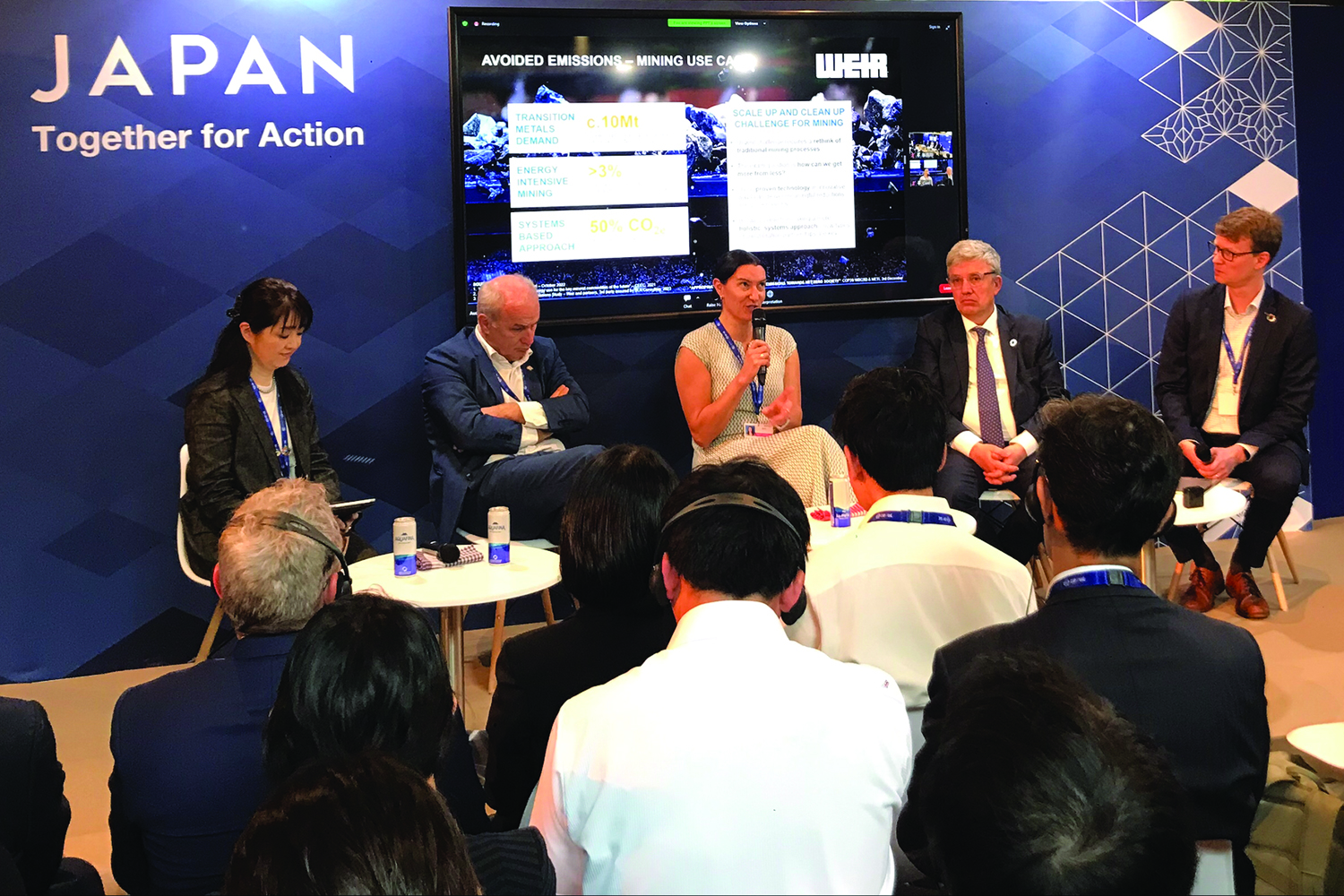
Paula Cousins, chief strategy and sustainability officer for Weir, participates in a panel discussion on the potential of avoided emissions at the COP28 UAE Japan Pavilion seminar in Dubai. (Photo: Weir)
The Weir Group PLC, a global mining technology leader, has completed a comprehensive study that highlights a significant opportunity to reduce energy use and emissions in comminution. The rock crushing process that is key to mineral liberation consumes around 3% of the world’s electrical power each year. The study shows that replacing conventional technology with innovative new solutions can cut energy use by 40% while also avoiding 50% of CO2e emissions.
Speaking at a COP28 panel discussion hosted by the Ministry of Economy, Trade and Industry of Japan and moderated by the World Business Council for Sustainable Development (WBCSD), Paula Cousins, chief strategy and sustainability officer at Weir, revealed the details of the study that demonstrates how using innovative technologies to crush rocks can yield significant sustainability benefits at lower operating cost.
The findings of the study come at an important time. Metals, such as copper, nickel and lithium, are critical elements of the technologies that will power a low-carbon future and it is widely accepted that a substantial increase in the production of these metals is needed for the transition to net zero. In response, the mining industry is actively seeking to adopt new technologies which extract and process those metals in more energy-efficient and sustainable ways, alongside increasing the use of renewable power.
Given its energy intensity, the decarbonization opportunities in comminution are huge, with the basic comminution process not having changed significantly for many decades. Weir is collaborating with customers and other partners to redefine the process, developing innovative combinations of proven technologies to make significant improvements to efficiency and environmental performance.
“The need for technology solutions in mining is compelling. The world needs more transition metals to achieve net zero, but the mining industry needs to extract these using significantly less energy and water,” Cousins said. “Our new, externally assured study highlights the potential for energy savings of 40% and for 50% of CO2e emissions to be avoided in comminution, the most energy-intensive stage of mining processes. By adopting a systems-based approach to technology collaborations, we can help the mining industry scale up and clean up at the same time.”
The study is the first to use WBCSD’s Avoided Emissions Guidance to study mining processes and the avoided emissions results have been independently assured by SLR Consulting Ltd. Three of Weir’s technology combinations were evaluated against a conventional comminution circuit design for an archetypal mine processing 15 million mt/y of copper ore in Chile. All three yielded sizeable benefits versus the traditional circuit.






